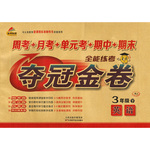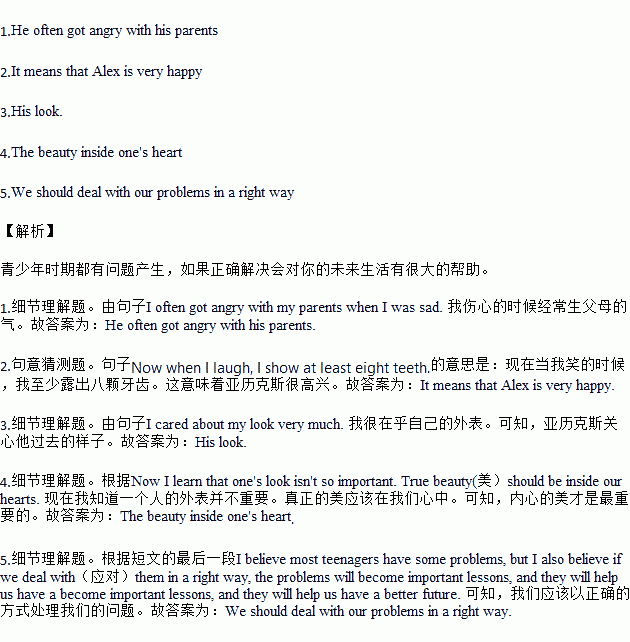题目内容
I'm Alex. When I was a teenager, I always felt unhappy. I often got angry with my parents when I was sad. When I grew older, I understood it was wrong to do that. I decided to try my best to calm myself down (使……冷静)and get on well with others.
Now when I laugh, I show at least eight teeth. That shows how I am feeling. I start to be polite(礼貌的)to people around me.
I had another problem in the past. I cared about my look very much. I spent much time in front of the mirror every day deciding what my hair should look like, while all my dirty clothes were on the floor of my bedroom.
Now I learn that one's look isn't so important. True beauty(美)should be inside our hearts.
I believe most teenagers have some problems, but I also believe if we deal with(应对)them in a right way, the problems will become important lessons, and they will help us have a become important lessons, and they will help us have a better future.
根据短文内容,回答下列问题。
1.What did Alex use to do when he felt sad?
______________________________________________
2.What does the underlined part mean?
______________________________________________
3.What did Alex care about in the past?
______________________________________________
4.According to the passage, what is true beauty?
______________________________________________
5.If we want to have a better future , what should we do ?
______________________________________________
 夺冠金卷全能练考系列答案
夺冠金卷全能练考系列答案
